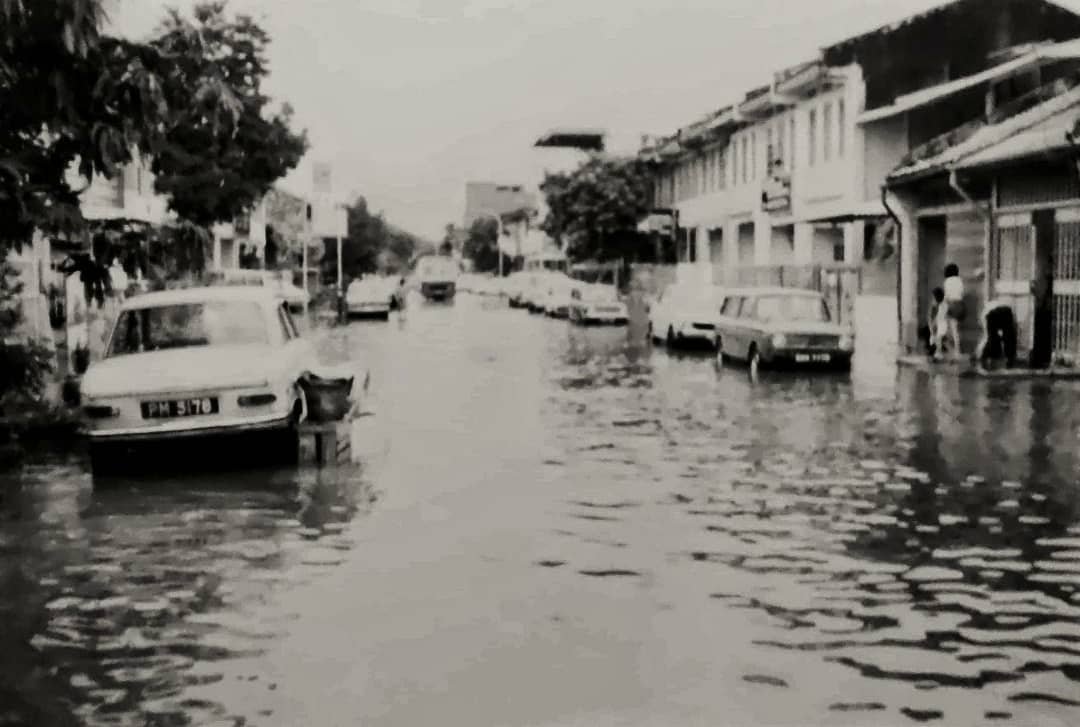Floods: now and then, and the future.
Part of my childhood memories includes growing up in a neighbourhood where it flooded often. Some nights, we would be woken up by thunderstorms in the middle of the night - just to find that water had already flooded our living room downstairs. Furniture and some of our things would be floating in the dank-smelling, murky water. Once, my entire school bag was soaked through, and my books weren't spared. I recall having to dry hundreds of pages of my textbooks and exercise books out in the sun. There was even a time when my tortoise went missing after a flood. I never saw it again, but I (cautiously) hoped it found a good life in a new household (and not as another larger reptile’s dinner).
A picture of the flooded street where I used to live (April 1984).
But floods were a common thing in my old neighbourhood back then. It happened before I was born, and it is still happening now. Usually, it takes a few hours for the water to fully recede, but there was a time long ago when it took almost two days.
It has been more than 20 years now since I moved out, and the old house doesn't flood as frequent as it used to (thanks to the upgraded drainage system). [You may catch a glimpse of what the flood is like in the short documentary, Grey Scale]. But as a child, I understood the damage, devastation and trauma that flash floods can wreak on a household, especially on families that may not have the means to recoup their losses.
Today, as an adult, I understand flash floods from a structural and systemic point of view. My work is related to the issues around climate change and urbanization, and I am afraid that the prospects of floods will only get worse in future if we don't take the necessary steps to adapt now. Even if the world manages to meet its commitment to cut greenhouse gas emissions, the global average temperature will still rise by about 2.7°C by the end of the century - an outcome that will only trigger more extreme weather events. We are confronted with the climate crisis, whether we acknowledge this reality or not.
Here's sharing the latest News Lab project, a compelling story of climate and flood told through the eyes of survivors affected by the flash flood, which devastated eight states in Peninsular Malaysia in December 2021. Please take time to read it and do find out the temperature rise and rainfall trend in your neighbourhood. Share it with your friends and families. Props to the talented team at Malaysiakini for pulling off this project despite the many challenges. That said, I am pleased to have contributed a small bit to this project, a story about floods which has come full circle for me.
When the water rises: A Malaysian climate change story
Aidila Razak and Arulldass Sinnappan | Aug 29, 2022


